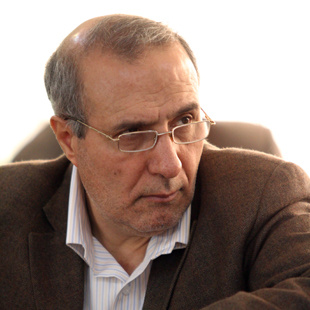Westerwelle’s Visit to Tehran and Some Unanswered Questions

Since Mr. Westerwelle’s arrival in Berlin, heavy speculation was created by the news media about the goals of his visit to Iran. While Iran banged the drums of victory in "violation of Europe’s decision not to deploy EU foreign affairs ministers to Tehran", beyond the borders the international media reported the aim of Westerwelle’s visit to Tehran merely as "obtaining the release of the two journalists", and going beyond that by citing the reason for the German minister of foreign affairs’ meeting with Ahmadinejad as "Meeting Mr. Ahmadinejad, the condition for the release of the two journalists", something that made the German minister angry. According to the claim of those news agencies, the “sunken” face of the minister in contrast with "smiling" face of the Iranian president are results of the condition and resulting anger.
In this essay, I try to review the biased manner of broadcasting the news about the visit, unfortunately tied to the governing procedure in foreign policy and national issues.
At 18:13, Bahman 30, under the title of “German minister of foreign affairs to come tonight to Tehran”, Fars News Agency wrote: "the Fars news agency’s foreign policy reporter: Westerwelle, the German minister of foreign affairs, will visit Tehran to talk to and consult with our officials on Monday. He will discuss the development of bilateral relations and also regional developments with the authorities of the Islamic Republic of Iran.”
At 21:30, under the title of ‘to talk about Tehran - Berlin relations”, the agency reported: “Germany’s foreign minister arrived in Tehran minutes ago.” Despite the reported news about Westerwelle’s visit to Tehran, the visit lasted a few more hours and as the Fars news agency reported, after arrival at Tehran at 21:30 on Saturday and meeting Ali Akbar Salehi, the minister of foreign affairs, and Mahmoud Ahmadinejad departing Kish for Tehran for a meeting, Westerwelle left Iran in the early hours of the next morning with the two German journalists.
The Iranian and German ministers of foreign affairs attended a press conference in the early hours of Sunday at the MFA. In response to a question by Fars News Agency about the German government’s position regarding Iran’s access to peaceful nuclear energy and the fuel cycle, Westerwelle answered: "Our position is known in this field and in complete coordination with the position of Europe and the international system. I am not a representative of the 3+3." (Fars news agency – Outgoing No. 8902010004, dated 89/12/1).
After returning to Berlin with two journalists, Westerwelle stated at a news conference: "My visit served a clear goal. That was not a meeting with important negotiations." Meanwhile, Hasan Qashqavi, a deputy of the Iranian minister of foreign affairs considered the visit "a defeat for the EU” due to the decision of the EU foreign ministers to avoid visiting Tehran, and continued: "Westerwelle’s visit made the decision void.” (Qashqavi in an interview by parliamentary IRNA reporter, on 89/12/1).
Some points should be listed about the visit and surrounding events:
1. While the official sources and some news agencies such as Iran, Fars, etc. emphasized "the victory of Iran’s diplomatic campaign with the EU", Western sources consider Westerwelle’s visit simply as “obtaining the release of two journalists".
2. Western news media reported "the coercion on Westerwelle to meet Ahmadinejad” as a condition to release the two journalists; that subject was quoted by the evening section of Iran news agency from other news agencies. What adds to the ambiguity of the claim is that Iranian officials kept silent and did not deny the claim. Printing a picture of the German minister’s meeting with the Iranian president, the Austrian newspaper, Kalatie Satoung, claimed: “the condition to release the journalists was meeting Ahmadinejad.”
3. Besides that and regardless of the claims and denial of the two sides, other issues should be discussed; Mr. Ahmadinejad was on a domestic visit to Kish when the German minister of foreign affairs came to Iran. Based on formalities, the German minister of foreign affairs should be the one meeting the head of state, and Admadinejad should not have to leave his visit incomplete to meet a foreign minister by returning to the capital (although much important). Such formalities were maintained in the period of the three ex-presidents (Ayatollah Khamenei, Hashemi Rafsanjani and Khatami) and the writer has numerous evidence on hand from these three periods.
4. Why should the deputy of the minister of foreign affairs express such a false statement, leading to insults to Iran in the media, and before the authorities of other countries can make statements and the issue that the meeting to release the two journalists is considered as "Minister’s mental war"? Such a position, adopted with the aim of domestic consumption, lasts only a few hours and immediately after the nature and aim of the visit is disclosed, it tilts the country’s image.
5. Why do some news media rely so much on news that is untrue? Is the German minister’s answer, i.e. “Our position is known in this field and in complete coordination with the position of Europe and the international system,” not enough to change the routine?
As a conclusion, it should be mentioned that Ali Akbar Salehi’s action in resolving the problem and releasing the two German journalists represents a new approach in the country’s diplomatic attitudes to avoid adventurism in foreign policy, to resolve minor issues to achieve important goals, and to overcome bigger challenges and to act rationally instead of irrationally as practiced in the last five years. I also think the minister of foreign affairs’ measure, apologizing to his Spanish counterpart over the incident of insulting a Spanish diplomat on Bahman 25 was rational in controlling measures in the field of foreign relations.

